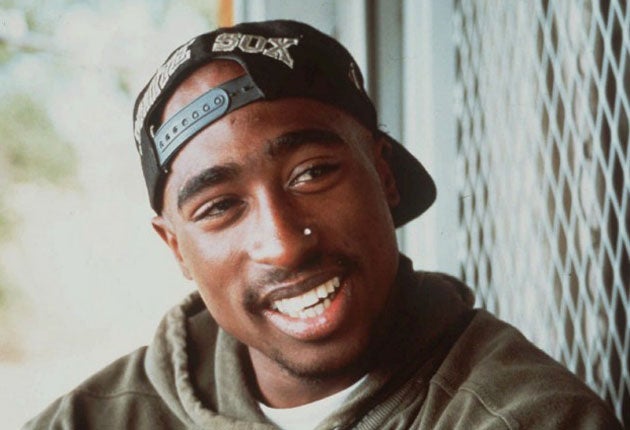Prisoner confesses to shooting Tupac two years before murder

Police in New York are investigating a fresh lead in one of the most talked-about murder cases of recent times, after a convicted prisoner confessed to having shot and robbed the late rap artist Tupak Shakur.
Dexter Isaac, who is serving a life sentence at Brooklyn Metropolitan Center on unrelated charges, said he was paid $2,500 by a hip-hop producer called James Rosemond to commit the attack, outside the Quad Studio, a recording facility in Manhattan, in 1994.
On a message board hosted by the urban music website allhiphop.com, Isaac claimed that Rosemond allowed him to keep all the jewellery he could steal during the robbery, except for a diamond ring he wanted to give to a girlfriend. "I still have as proof the chain that we took that night in the robbery," he wrote.
Shakur was wounded in the 1994 incident, but recovered. Two years later, he was killed in a second shooting during the notorious "East-West-Coast conflict" of the 1990s, which pit artists from a Los Angeles record label, Death Row, against performers loyal to a New York rival, Bad Boy Entertainment.
Rosemond, also known as Jimmy Henchman, is on the run from federal authorities who suspect him of being involved in drug-trafficking. But his lawyer, Jeffrey Lichtman, told reporters that Isaac's statement should be taken with a pinch of salt. "He's a convicted killer who was brought back by the US attorney, solely to co-operate against Jimmy Rosemond," Mr Lichtman told the New York Post. "And wouldn't you know it, he spins this tale."
Yesterday's claim, made on what would have been Shakur's 40th birthday, opens a fresh chapter in a murder-mystery which continues to fascinate and retains a storied place in the history of hip-hop culture. A year after Shakur was killed, Bad Boy's Christopher Wallace, a rapper known as "Notorious B.I.G." was gunned down in Los Angeles. His death inspired one of the most successful hip-hop records, a cover version of "I'll be missing you" by Wallace's friend and mentor, Sean "Diddy" Combs.
Isaac appears to have decided to issue his statement as part of a long-running feud with Rosemond. "I would like to clear up a few things, because the statute of limitations is over, and no one can be charged, and I'm just plain tired of listening to your lies," it reads. He added that it was now time to give the mothers of Shakur and Wallace "some closure".
In 2007, the Los Angeles Times published a report which accused Rosemond of collaborating with Coombs, who is now a squeaky-keen business mogul, in the Quad Studio shooting. The claim was denied by both Coombs and Rosemond. Days after that report was published it was withdrawn by the newspaper, after some of the evidence gathered during research turned out to have been faked. The reporter responsible, Chuck Phillips, left the LA Times a few months later.
Join our commenting forum
Join thought-provoking conversations, follow other Independent readers and see their replies
Comments
Bookmark popover
Removed from bookmarks